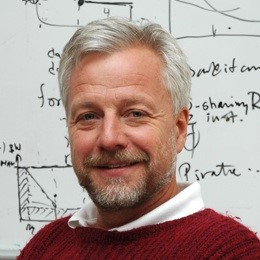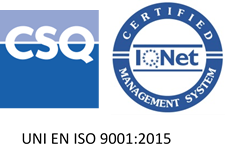Different ways to run a startup
Si è svolta a luglio la 15esima edizione della International Summer School on Advanced Computer Architecture and Compilation for High-Performance and Embedded Systems (ACACES 2019), organizzata da HiPEAC in collaborazione con TETRAMAX Innovation Action e Eurolab4HPC . Come per le edizioni precedenti, Reiss Romoli ha avuto un ruolo chiave nella organizzazione e gestione dell’evento.
A questa edizione hanno partecipato circa 220 ricercatori provenienti da molte delle università europee ed esperti del settore, con docenti provenienti da rinomate università americane e da industrie di punta del settore.
Durante la Summer School i partecipanti seguono 4 corsi, scelti tra i 12 del programma, oltre a un Keynote Speach e a un Invited Talk.
Per l’edizione 2019 di ACACES l’Invited Talk è stato tenuto dal prof. Erik Hagersten dell’Università di Uppsala, che ha parlato di:
Different ways to run a startup
All startups are different, and there is no magic sauce or formula that will guarantee success. Running a traditional startup is also VERY different from running a successful research project. There are, of course, new areas to understand, such as law, taxes, financing, investors, IP, business planning, validation, prototyping, production, marketing and sales. But not even the most basic areas of the research, such as the baseline systems, simulation methodologies and evaluation principles, may hold for a startup.
The most brilliant research ideas can lead to an unsuccessful startup if all areas are not understood and dealt with appropriately. The talk has been on prof. Hagersten ‘s experience in running two startups: one a more traditional startup that attempted to cover all the areas, and the other a scaled-down attempt to avoid most of the areas.
Erik Hagersten
|
Erik Hagersten has moved between industry and academia about ten times. He holds a professor chair in computer architecture at Uppsala University in Sweden since 1999. Prior to this, he was the chief architect for Sun Microsystem's high-end server engineering division in the US 1994-1999. In 2006 he founded Acumem AB, developing new modeling technology for multicore software optimisations. Acumem was acquired by Rogue Wave Software Inc. in 2010. In 2014 he founded Green Cache AB, developing new and efficient tag-less cache architectures. Green Cache was sold in 2018. At Uppsala, Erik has built up he Uppsala Architecture Research Team, UART (it.uu.se/research/group/uart) – one of the largest architecture research groups in Europe. UART performs research in fast performance modelling technology, compiler technology as well as more traditional computer architecture topics. He is a member of the Royal Swedish Academy of Engineering Sciences (IVA) since 2002. |
 |



